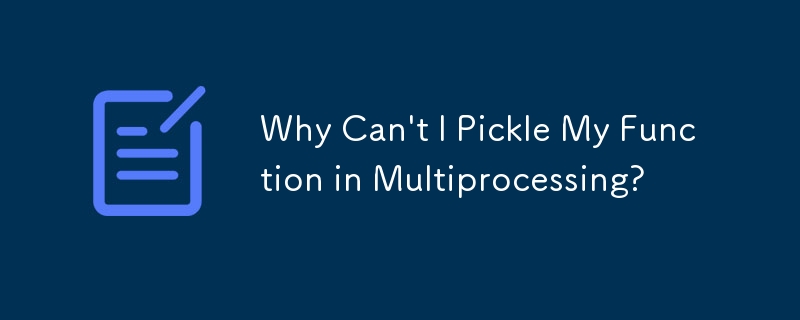Home >Backend Development >Python Tutorial >Why Can't I Pickle My Function in Multiprocessing?
Why Can't I Pickle My Function in Multiprocessing?
- Linda HamiltonOriginal
- 2024-12-09 22:28:14984browse

Multiprocessing Error: "Can't Pickle
Your code encounters a "PicklingError: Can't pickle
Understanding the Pickling Hierarchy
Python's pickling mechanism enables the serialization of objects into a byte stream for later deserialization. However, not all objects can be pickled. Notably, functions are only picklable if they are defined at the top level of a module. This is because the pickle function requires access to the function's globals, which are not available when defined within another function or class.
Your Code's Situation
While your function is defined at the top level, it calls other functions that may not be top-level definitions. This can create a recursive dependency, making the pickling of the top-level function impossible.
A Solution: Move the Function Definition
The key to resolving the issue is to ensure that the function you're attempting to pickle is defined at the top level of the module. If necessary, move the function's definition outside of any classes or other functions.
Here's an example:
# Original code
class Foo:
@staticmethod
def work(self):
pass
# Updated code
def work(foo):
foo.work()
Wrap-up
By understanding the pickling process and its limitations, you can avoid errors related to the pickling of functions. Remember to define functions at the top level of the module to ensure their successful pickling when using multiprocessing.
The above is the detailed content of Why Can't I Pickle My Function in Multiprocessing?. For more information, please follow other related articles on the PHP Chinese website!

